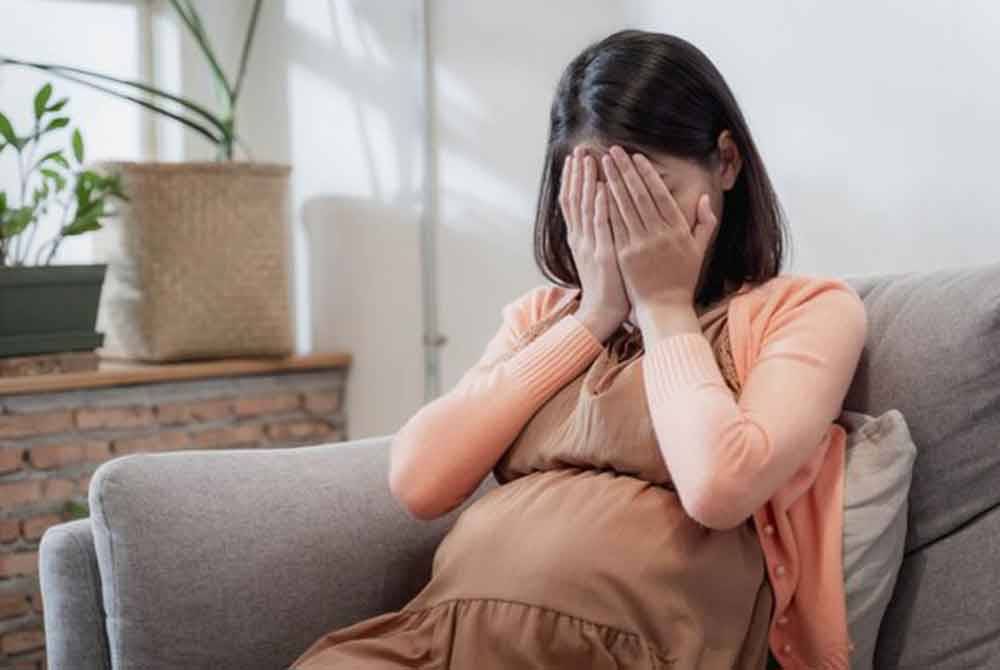Marriage not the best solution for unintended pregnancies
Rushed decisions might lead teenagers to struggle with the pressures of a new life potentially resulting in desperate actions like baby abandonment.

SHAH ALAM – Forcing teenagers with unintended pregnancies to marry their partners to avoid public shame is not the best solution.
International Islamic University Malaysia Psychology Department Assistant Professor Dr Intan Aidura Alias said such decisions could lead to additional stress or issues, such as the inability to care for the child, potentially resulting in desperate actions like baby abandonment.
"There are societal practices that view marriage as a way to cover up the shame of premarital relationships. However, rushed decisions might lead teenagers to struggle with the pressures of a new life," she told Sinar.
She explained that without proper guidance, these individuals might make irrational decisions, such as abandoning their baby, due to feeling unprepared to become responsible parents or as an escape from the burden they experience.
"If a mistake has been made, the couple must repent. More importantly, they should provide the best care and attention to the unborn child.
"If they are unprepared, the child should be handed over to family members or entrusted to responsible authorities such as the Social Welfare Department, non-governmental organisations, or placed in a baby hatch for their safety and welfare," she said.
In November, the Health Ministry revealed that 44,263 cases of teenage pregnancy had been recorded over the past five years.
Out of this number, 17,646 involved unmarried teenagers, sparking widespread concern over teenage pregnancy, underage marriage, baby abandonment and unsafe abortions in the country.
Discussing the main causes of teenage pregnancy, Intan said the extensive use of social media could influence teenage behaviour, as it often portrayed sexual content as a norm.
"Social media also exposes teenagers to predators such as pedophiles or individuals with malicious intent who may exploit them.
"This can lead to risky situations like sexual abuse, which may ultimately result in teenage pregnancies.
"The widespread use of social media has grown during the pandemic, increasing teenagers' exposure to unhealthy cultures. There have also been reports of rising teenage pregnancy cases during and after Covid-19," she said.
Intan also pointed out that lack of supervision and poor parental relationships could leave teenagers to act without boundaries.
"For example, migration from rural to urban areas may expose teenagers to new trends and peer influences.
"If their peers do not prioritise ethics, morals and religious teachings, these teenagers are more likely to engage in sexual misconduct.
"Studies have also shown that socioeconomic status is a significant factor in teenage pregnancies. Poverty may cause parents to focus on earning a living, leaving their children unsupervised, which can lead to them mingling with negative influences and eventually engaging in sexual activities," she said.
Intan emphasised that preventing teenage pregnancies required more than just teaching about religious values.
She said it involved explaining the significance of laws prohibiting premarital sex and the consequences of such actions.
"Premarital sexual activities are considered a sin in religion. Therefore, it is essential to uphold religious values as part of efforts to prevent teenage sexual activities that could lead to pregnancies.
"Research also indicates higher rates of teenage sexual activities among those with less religious education.
"Religion-based awareness campaigns can play a vital role in achieving this goal. A strong sense of faith can also help deter teenagers from engaging in pornography, which is a major factor in teenage sexual activities," she said.
She added that sexual and reproductive health education, including interventions that assess knowledge of pregnancy risks, future planning and peer influence, could more effectively prevent teenage pregnancies.
She said parents also needed to be more vigilant and monitor their teenagers' behaviour by keeping track of their friends, whereabouts and discussing sexual and reproductive health openly at home.
"This topic should not be treated as taboo because teenagers might otherwise receive inaccurate information from peers or social media.
"If these discussions do not happen at home, teenagers could engage in unsafe sexual behaviour," she said.
Download Sinar Daily application.Click Here!











